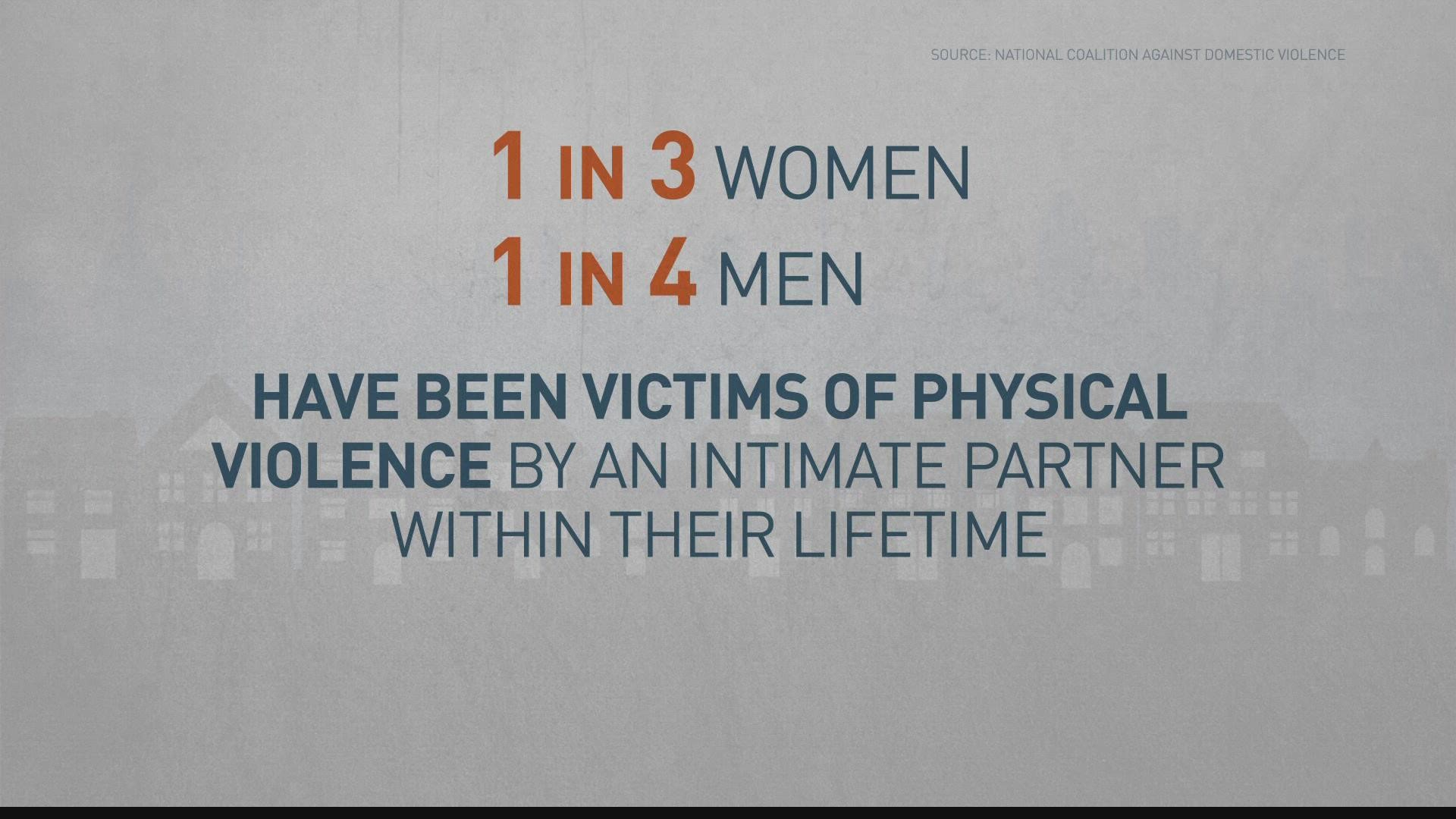JACKSONVILLE, Fla — Directors of domestic violence shelters on the First Coast fear the Supreme Court's decision to overturn Roe v. Wade will make more people stay domestic violence victims.
"Children are a pawn in most domestic violence relationships," said Dr. Theresa Beachy, executive director of Peaceful Paths Domestic Abuse Network. "There's something that the batterer can use to make the victim act in a certain way, not leave, create greater dependence."
Depending on where you live in Bradford County, Peaceful Paths in Gainesville may be your closest shelter to escape domestic violence. Beachy said children are often a reason domestic violence survivors don't get help sooner.
"The fear of having your children go into the system of DCF, that if you make a report to law enforcement that suddenly child welfare is involved, that is a huge barrier for a lot of women," Beachy said. "Or just the threat knowing that if they are legally bound to the person by marriage or through a child that's on a birth certificate that the court system may actually award those children to the batterer. We see that happening more and more often."
One in three women have experienced physical violence by an intimate partner, according to the National Coalition Against Domestic Violence. CDC data reports unintended pregnancies are highest in communities of color and low-income communities.
"We really do force survivors into a situation where they're going to continue to be victimized by someone who has control of their life through a child," Beachy said. "One of the things that I know is that over the years we've encountered a lot of survivors who have found themselves in very unfortunate situations where they were not given access to birth control or their partner says they would use birth control and they didn't and then they found themselves in a situation where they would now be legally tied to this person through a child. Someone who is violent, someone who has threatened their lives."
Beachy says the children are impacted as well.
"What we know is that those children that are born out of forced relationships, forced sexual interactions, are at greater risk of abuse and greater risk of poverty, start miles behind children that are in wanted, healthy relationships," she said.
The National Domestic Violence Hotline number is 1-800-799-SAFE (7233).- Call Peaceful Paths at 352-377-8255 or text 352-727-0948. The Statewide Domestic Violence Helpline is 1-800-500-1119.
Domestic violence survivors are also impacted by gun legislation President Joe Biden signed Saturday. It closes the "boyfriend loophole," which has to do with the ability of domestic abusers to own guns.
Before the bill, domestic abusers could not own guns only if they were married to, living with, or shared a child with their partner. Abusers who were in intimate relationships that didn't fit into these categories could still own guns.
Beachy says there are still loopholes for abusers to own guns.
"It doesn't always cover misdemeanors, most domestic violence are misdemeanors, unfortunately," Beachy said. "We see these loopholes that people can continue to regain and retain their weapons or able to get their weapons back and then it just increases the lethality. Domestic violence victims are in the highest percentage of people who are killed with handguns every year."
Read more about the gun violence legislation here.

